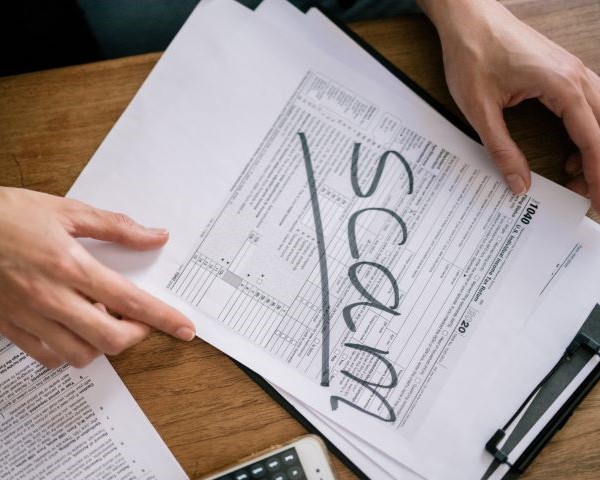Tips on How to Identify and Avoid IRS Scams
Avoid IRS scams? I’d never fall for any tax scam, you might think. But these attacks are everywhere, and they can sometimes be hard to spot. In the last few years, scammers have targeted more than 2.4 million people in the US. Consequently, some 75,000 victims have lost more than $70 million. Not only do these attacks steal cash, but often identities and/or bank info as well.
Ways to Spot IRS Scams
First and foremost, if it’s a phone call, hang up! The IRS never calls (especially with a pre-recorded message). Neither does it fax, text, email or show up unannounced as the first contact to let you know about a problem. Nor, at the other end of the bad news/good news spectrum, to let you know you have a refund. The first communication from the IRS will practically always be a letter.
The IRS will also never contact you to demand immediate payment. Neither will they threaten you with imprisonment, cancelling your Social Security number or deportation if you don’t pay right that instant. They will never request payment in the form of prepaid debit cards, gift cards or a wire transfer.
Don’t respond to any request for your Social Security number or W-2 information. The IRS already has that, so anyone asking for it is most likely trying to steal your identity. Once they have the info they need, they can file fraudulent tax returns in your name and/or run up debt using your identity.
Delete That Email!
If a supposed IRS email lands in your mailbox, don’t click on any links it contains, or open any attached file. A link may try to coax your Social Security number or bank information out of you. Or worse, if you open a link or attached file, it can deposit malware or keystroke recorders on your computer. That will give them access to even more of your information and passwords. Forward any suspicious email to the IRS at phishing@irs.gov.
Toss Out That Text!
Similar to a suspicious text, don’t click on any links or attachments to a text that says it’s from the IRS. Forward the text to the IRS at 202-552-1226. If possible, send the IRS a second message with the number the fraudulent text came from, then delete the fake IRS message.
Do You Owe Money?
If you think you might owe the IRS money, or you’re not sure, you can log into your IRS account to find out. (You can set one up in about 15 minutes if you don’t have one already.) Beware of anyone contacting you to set up an offer in compromise (unless it’s someone you already know and trust, like your accountant). There are unscrupulous companies who will charge people up front who may not be eligible for this IRS program.
Tax Preparer IRS Scams
Speaking of accountants, watch out for any tax preparer who doesn’t have a PTIN (their registered preparer number with the IRS), or insists that you mail in your return, or refuses to sign your returner. They may promise you a big refund in return for a percentage of it, or a higher preparation fee. But just walk away! Use a well-established professional, like your friendly accountant (who just might write blog posts)!
Links
If you’ve been a victim of an IRS scam, report it online.
Lastly, you can learn more about our services here!


Recent Comments